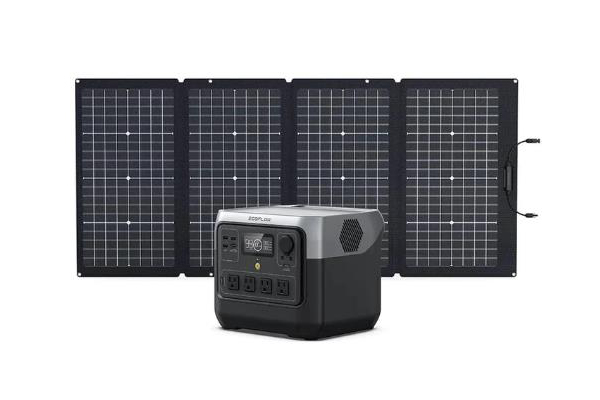Being an outdoorsy or living in an area with frequent power cutoffs/failure is one of the most annoying things one could go through. From limited to no energy supply to getting short of natural fuel for gas-powered, the situation may go worse over time if not taken timely actions.
Thanks to the advancements in technology and successful experimentations from the industry experts, you can now employ a backup solar generator and get the peace of mind you have been looking for!
Over the years, industry pioneers have introduced BES (Battery Energy Storage) technology whose sole purpose is to store energy from the sources and convert into electric power for household and commercial use.
Here, you might be wondering why solar energy has become so important to run your daily life and why is it getting attention to power electronic devices that were running without it in the past. If that’s so, it’s high time to bring some aspects to light.
Overview of Solar Backup Generators
A backup solar generator works hand-in-hand with solar panels that are responsible to collect solar energy from the sun, store in the batteries and convert it into electricity with the help of an inverter. A generator then gets into action by distributing that electric power to different electronic devices- be it a television, refrigerator, air conditioner and the likes.
Advantages of a Backup Solar Generator
- Free Fuel Supply: Solar panels receive energy from the sun, which is free to get at any time of the day. However, you have to make some investments for the procedure to happen i.e. in the solar power gear. In fact, solar energy doesn’t fall under volatile price fluctuations such as diesel and gasoline. After deploying the setup, your fuel is ‘free.’
- Clean Renewable Energy: Since a backup solar generator doesn’t work on fossil fuels or gas, you don’t have to worry about the environmental effects. They don’t emit pollutants while at work, thereby ensuring clean energy during camping or boating.
- Less Noisy and Low in Maintenance: One of the best things is that solar generators produce least or no noise, thanks to the type of energy supply and no moving parts. Even, with no movable components, there are lesser chances of damage leading to maintenance expenditure.
Disadvantages of a Backup Solar Generator
- Huge Initial Investment: They require comparatively higher investment than those gas-powered generators. But the operating cost is low.
- Slow Recharging and Limited Power Supply: A backup solar generator requires sunlight to recharge but its charge time differs with the intensity of sunlight. On average, a 100W solar panel take up to 8 hours to recharge solar batteries.
Wrapping Up
Gone are the days when they could use as much electricity as they want against a nominal amount. Today, electric power has become quite expensive and asks for a significant amount of payment in return. Therefore, it’s the essence of time to shift to other power sources, especially energy from the sun that doesn’t charge anything and can be a good resource at anywhere across the world- be it your home, camps etc.
There are more advantages and disadvantages of using a backup solar generator. Your task is to pick the right one based on your requirements and daily power usage.



